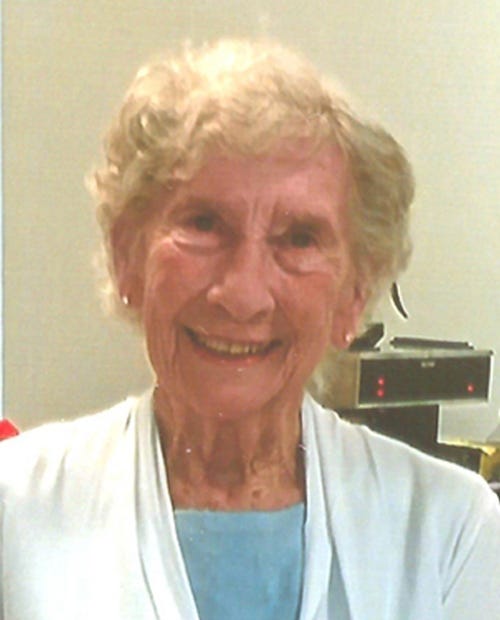
My life became somewhat intertwined with one of the “town” families who were prominent in Milton's affairs during the 1930s-60s. Milton had only a few families who exerted a good bit of influence with its small population during those years.
Betty, the daughter of one of these families, became a good friend of mine in high school, where we vied for grades. Ultimately, she won, becoming valedictorian by only a few tenths of a point higher than my salutatorian grades. Her dad was a banker, the brother of the two sisters I later worked for.
One sister had a flower shop in her Canal Street home, where I worked for a short time. The other sister, Miss Addie, owned and operated the Milton Cash House on north Willing Street.
This grocery served Milton during World War II, and Miss Addie amassed a supply of hard-to-get canned goods, especially fruits, due to a war time sugar shortage. They were kept not on the grocery shelves, but in the basement for favored customers.
The store, with no air conditioning, had a double screen door fronting on the sidewalk that provided cross ventilation with windows at the back.
One memorable customer was Mrs. Read, who had Milton’s only boarding house. Each morning she called in her delivery order (on the rotary phone) for that day.
Another customer made several trips to the grocery almost every day, secretly buying some of the still hard-to-get items. I say secretly because she kept the purchases secret from her husband. By her own word, he was “tight” with his money, and she paid in “dribbles and drabbles.”
Being a new mother, I worked only part time, and living on Canal Street, I walked to work at the Cash House. We owned an Airedale dog named Napoleon Bonaparte and called “Bones.” He was a strong, determined dog that broke restraints and jumped fences to follow me to work. Though he was otherwise an obedient dog, he lay in front of the store's screen doors, intimidating customers by not allowing them into the store.
Miss Addie asked me to bring the dog inside to lie behind the counter instead. He therefore stayed quiet. I gave him food and water in his spot, and we walked home together. Bones, too, was my friend and “protector.”
Betty and her aunts became my friends for the rest of their lives. Betty was a missionary to Japan and, later, a Louisiana State University professor.
Doris Melvin Kingry, retired English and Journalism teacher, was first woman elected to public office in Santa Rosa County, where she served eight years. She is a native Santa Rosan, living where her family has lived for several generations.
This article originally appeared on Santa Rosa Press Gazette: Young adult finds lasting friendships
